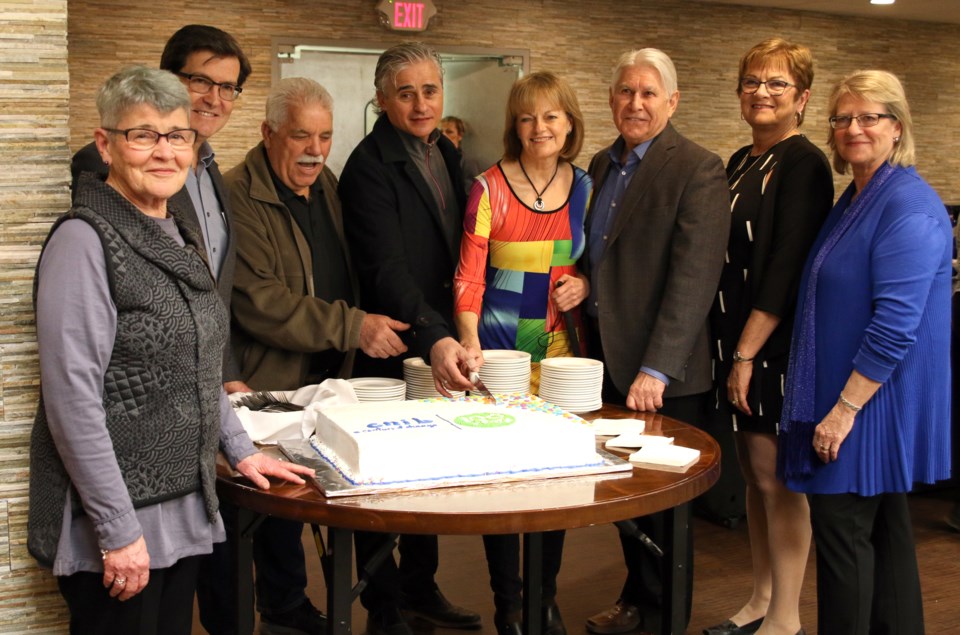THUNDER BAY - For 100 years, a nation-wide organization has been helping make communities across the country more accessible to those who experience the world a little differently.
The Canadian Institute for the Blind (CNIB) celebrated 100 years of serving people with vision loss during a local ceremony on Saturday.
“You only turn 100 once,” said Tanis Boardman, program lead for peer support and advocacy with the CNIB. “It’s also an opportunity to recognize community members who are blind and partially sighted out in our community and getting involved and the volunteers who dedicate many hours of their time to this organization.”
More than 100 years ago, the number of people with vision loss was increasing across the country as countless soldiers returned from the battlefields of Europe during the First World War with partial or complete vision loss and the 1917 Halifax explosion that left more than 850 people fully blind.
At that time, people with vision loss were more likely to live a life of poverty because of a lack of services. But in 1918, five Canadian men founded the CNIB to help people living with vision loss.
“That’s where it became widespread to ensure there were services in communities for veterans,” said Wendy Wiedenhoeft, a board member with the CNIB. “From that it’s grown into a number of people in our communities who are visually impaired, or blind, from newborns with specific conditions all the way up to the elderly.”
According to Wiedenhoeft, the CNIB operates on three key pillars: rehabilitation services, foundation services, and advocacy services.
In the last 100 years, services and accessibility have changed dramatically for people with vision loss and Boardman said that is largely due to technology.
“I think the direction CNIB is heading is the focus on the advancement of technology,” she said. “Technology has made the lives of people with vision loss or sight loss a little more accessible. CNIB is trying to focus on moving forward with things like Siri on your IPhone, beacon devices, apps you can purchase.”
Locally, the CNIB also serves all of Northwestern Ontario, which can be challenging, but it is a service that is very much needed in all communities.
“The Northwest region is a huge region and if you are blind or low vision in an outlying community, you might be the only person in that community with that disability,” Wiedenhoeft said. “Which is why it is important that services like CNIB are available to come out and give you some assistance and help you remain in your home community.”
But barriers still remain for people living with vision loss and Boardman and Wiedenhoeft said the CNIB will continue to work for another 100 years to eliminate those barriers, but they cannot do it alone.
“As members of our community, it’s sort of all our responsibility to ensure documents are accessible, websites need to be accessible, there is a lot of work to be done, but we are advocating strongly for that change,” Boardman said.
“I think it’s an ongoing issue that we as a community have to focus on,” Wiedenhoeft added. “We initiate something, like a bylaw or a strategy in the community, and then we kind of forget that it has to be maintained and it has to be carried on. It’s not enough just to say we are doing this bylaw, but we have to make sure that as time goes on, that we continue to meet the needs of people.”
